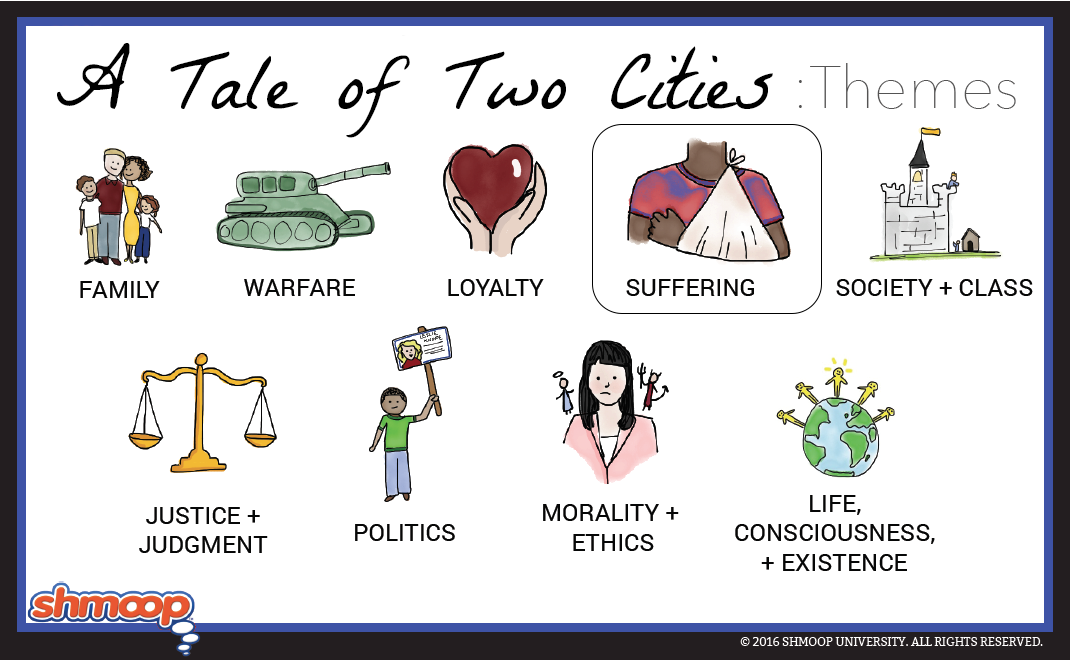 (Click the themes infographic to download.)
(Click the themes infographic to download.)
If you’re looking for suffering, A Tale of Two Cities is the novel for you. The poor of England have it pretty bad. The poor of France have it really, really bad. There’s no food; the noblemen press rural peasants to give up every cent they earn to fund exorbitant parties for the rich; and folks get locked up for decades without ever getting to go to trial.
Though this is France in the 1780s, Dickens doesn't expect this sort of suffering to remain in the past: the causes of suffering, he claims, aren’t historical. In fact, the prime cause of human suffering might just be human nature itself.
Questions About Suffering
- Why does Sydney Carton seem determined to believe that his life will never improve?
- Doctor Manette’s status as a former prisoner eventually gives him political power in France. Does this suggest that his suffering might be worth it in the long run?
- Lucie seems to be the one character whose suffering the novel often overlooks. Why do you think this is the case?
Chew on This
Because Sydney Carton believes from the beginning of the novel that his life will be full of suffering, his death is not really a change to the status quo.
In dying, Sydney Carton transcends all the expectations he had for himself and becomes a sublime figure of mercy.